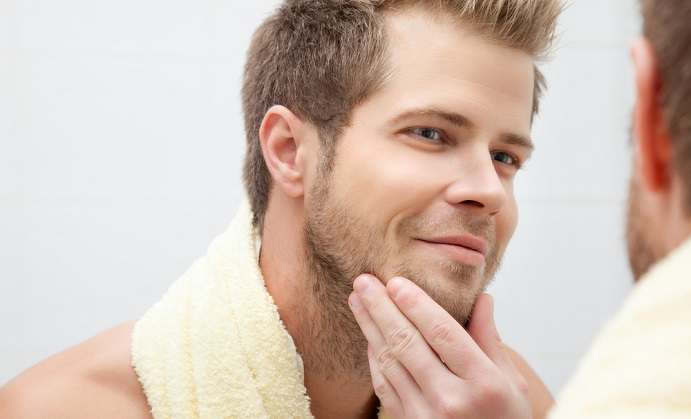Hair grows at the average speed of 1.25 centimeters or 0.5 inches per month. It does so in three phases: growing phase in which hair actively grows for 2 to 6 years, then there is a phase of transition until it finally enters resting phase, where the hair follicles are inactive, and it lasts about three months. This doesn’t mean that every six years your child’s hair will completely stop growing, actually 85% of all hair are growing at any given time, while some 10% to 15% have stopped. After the rest phase, that 10% to 15% of hair will start falling out, so losing 50 to a 100 strands of hair daily is quite normal.
 A number of different factors affect how hair grows, such as heredity, hormonal balance, underlying health conditions, stress and even lack of specific vitamins and minerals. And the thickness of the hair depends on the size of the hair follicle. Besides genetics and certain conditions, most of these factors can be avoided and your child can have strong, healthy hair, that is by making sure it has a balanced everyday diet, reducing stressful situations and having regular checkups with the doctor.
A number of different factors affect how hair grows, such as heredity, hormonal balance, underlying health conditions, stress and even lack of specific vitamins and minerals. And the thickness of the hair depends on the size of the hair follicle. Besides genetics and certain conditions, most of these factors can be avoided and your child can have strong, healthy hair, that is by making sure it has a balanced everyday diet, reducing stressful situations and having regular checkups with the doctor.
A study has shown a correlation between deficiency in iron and hair loss, so make sure your child taking at least the minimum recommended dose or if. Foods rich in iron include lean red meat, which also contains high levels of protein and proteins are essential for hair growth. But red meats are also high in saturated fats, so limit the meat consumption to once a week.
 Salmon is great for hair growth as it moisturizes the skin and is not only rich with protein, but also vitamin D and omega-3 fatty acids which are known to reduce inflammation. Inflamed and irritated scalp may lead to an onset of dandruff and oily hair, so try to incorporate more salmon is your child’s eating regimen.
Salmon is great for hair growth as it moisturizes the skin and is not only rich with protein, but also vitamin D and omega-3 fatty acids which are known to reduce inflammation. Inflamed and irritated scalp may lead to an onset of dandruff and oily hair, so try to incorporate more salmon is your child’s eating regimen.
Zinc is required for metabolic processes such as the making the proteins in your child’s nails and hair, so lack of it can lead to poor scalp condition and even hair loss.
Oyster have the highest levels of zinc, but hardly any child is going to eat them. Other foods containing zinc are beef, poultry, chick peas, and nuts such as almonds and cashews.
 Avoid giving your child fast foods, processed foods and carbonated drinks, as they are packed full with sugar. Good hydration is important, as lack of water in the body may cause the child’s hair to become brittle and dry. Also avoid using strong shampoos, they contain synthetic detergents and artificial foaming agents. Opt out for a natural or homemade shampoo instead. Brushing is very helpful, as it stimulates the blood flow in the scalp, but hard bristled brushes may have quite the opposite effect, so try to get soft bristled brushes, or the ones made from natural fibers.
Avoid giving your child fast foods, processed foods and carbonated drinks, as they are packed full with sugar. Good hydration is important, as lack of water in the body may cause the child’s hair to become brittle and dry. Also avoid using strong shampoos, they contain synthetic detergents and artificial foaming agents. Opt out for a natural or homemade shampoo instead. Brushing is very helpful, as it stimulates the blood flow in the scalp, but hard bristled brushes may have quite the opposite effect, so try to get soft bristled brushes, or the ones made from natural fibers.
Pay attention for any irritations on the scalp or patches of missing hair, schedule an appointment with the doctor so he may decide on the best treatment for your child.
Do you want to find an effective Digestion treatment? Check out our top rated Digestion products











